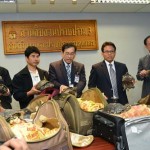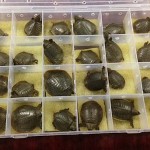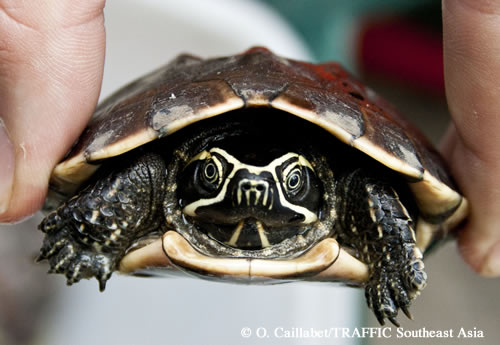
A disturbing report published by the wildlife trade monitoring network TRAFFIC reveals that an alarming number of protected and endangered tortoises and freshwater turtles are openly for sale in Indonesia.
Although Indonesian laws to combat illegal wildlife trade have been strengthened, and an increased number of airport seizures and market raids have been conducted, the effectiveness of these efforts continues to be hampered by corruption, according to the 2011 report.
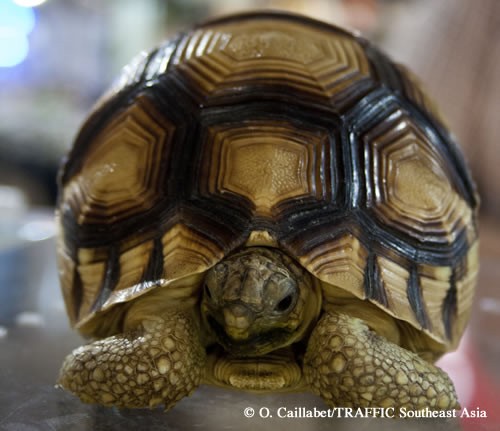
Endangered species and discrepancies
Researchers found 49 different species of tortoises and freshwater turtles during observations made at animal markets, reptile expos, and pet stores.
Of these 49 species, more than 60% (30) are considered threatened by the IUCN.
Six of these 30 species are Critically Endangered, another six are Endangered, and 18 are Vulnerable.
Many of the specimens lacked import documentation, and discrepancies were also found within the UNEP-WCMC CITES trade database records.
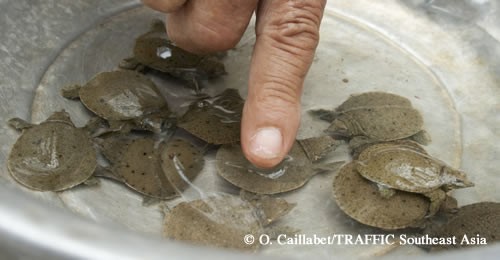
Corruption
Reptile dealers were found to be operating without fear of being punished – even though they are “fully aware” of the law.
Enforcement officers frequently tip off dealers about market raids, and if dealers are caught, they are rarely penalized.
If arrested, dealers receive low fines which are considered “an acceptable cost of doing business.”
This is particularly troubling, as it suggests that despite ongoing training and capacity building efforts made by Indonesian authorities and NGOs (including TRAFFIC), wildlife laws are not enforced.
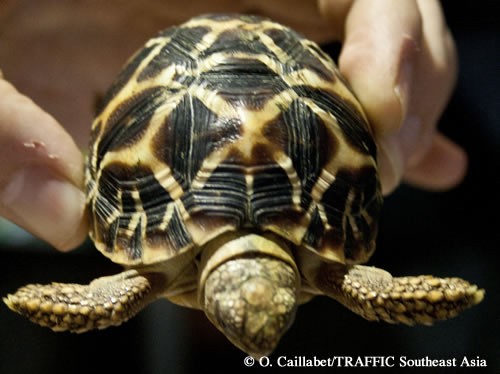
‘Status symbols’
TRAFFIC noted that the confiscation of illegal specimens from traders is not a deterrent, as they are back in business almost immediately.
It was recommended that the individuals found dealing in these animals be punished to the fullest extent of Indonesian law, which is the strongest of any ASEAN country.
This includes both financial penalties and prison sentences.
Without consistent enforcement of wildlife trade laws, this dire situation is quite likely to become worse.
Protected species are coveted as status symbols in Indonesia; the fact that an animal is “illegal” is often used as a selling point.
Unfortunately, as long as buyers are willing to pay high prices for these increasingly rare status symbols, dealers will continue to be lured into the illegal wildlife trade.
Download the entire report: The Trade in Tortoises and Freshwater Turtles in Jakarta, Indonesia Revisited
Photos © O. Caillabet/TRAFFIC Southeast Asia; courtesy of Chris Shepherd, TRAFFIC Southeast Asia
Originally published on Planetsave on August 21, 2011.


